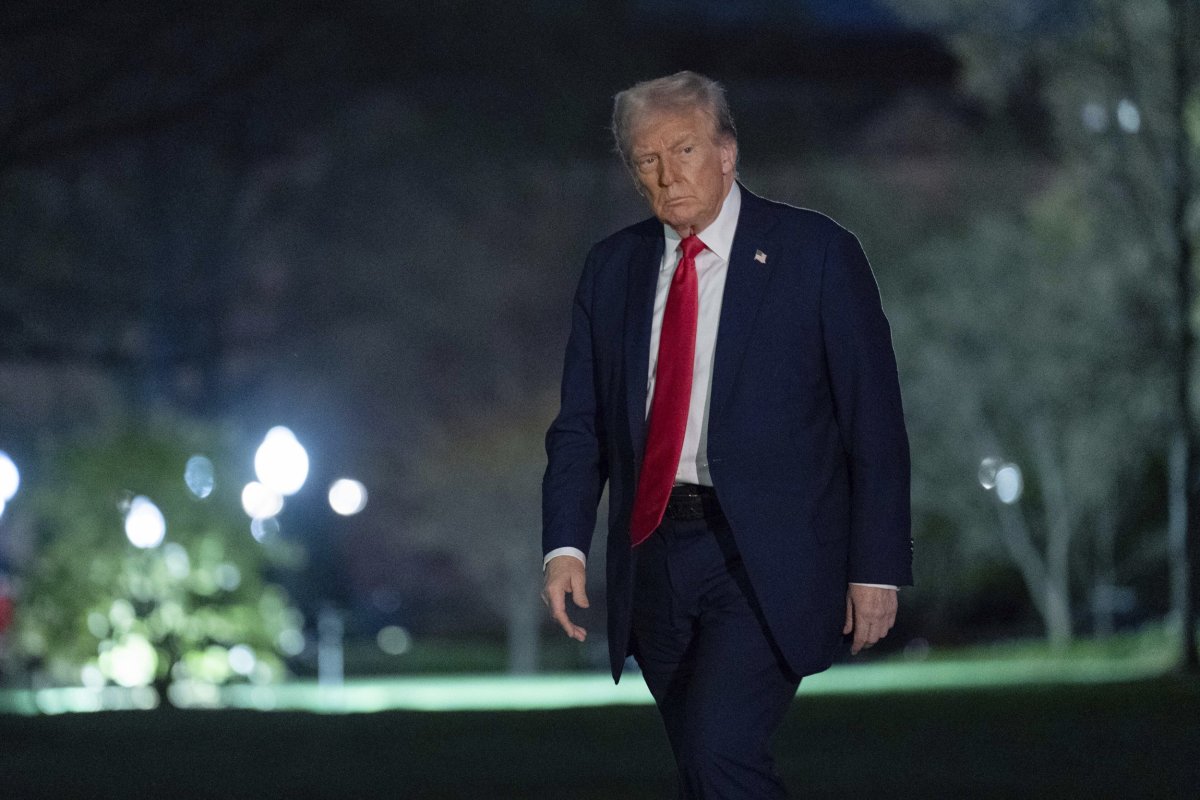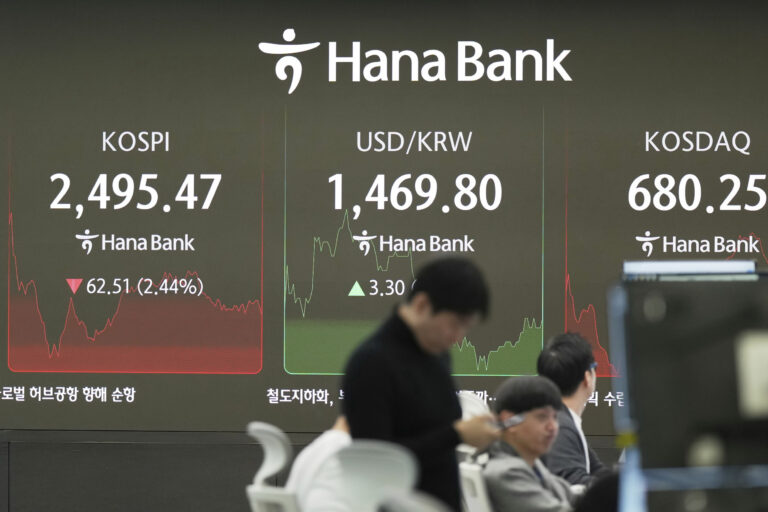Global stock markets are down, days before President Trump’s reciprocal tariffs and the recently announced duties on auto imports take effect.
Indexes across Asia and Europe have started the week in a slump, while Dow, Nasdaq and S&P 500 futures—contracts allowing investors to speculate on the future value of the major indexes—continued to slide over the weekend following Friday’s sell-offs.
After markets opened on Monday, the S&P 500 and Nasdaq composite were down—0.7 percent and 1.7 percent, respectively—while the Dow Jones Industrial Average was up 0.1 percent in early trades.
Why It Matters
Markets have continued to react negatively to the Trump administration’s regular announcements of new tariffs, indicating investors’ anticipation that their introduction could create more challenging conditions for business and trading once implemented, at least in the short term.
In addition to their direct effects, which economists have warned could increase the likelihood of a recession in 2025, there are additional concerns about the impacts of America’s trading partners’ responding with their punitive trade measures.

Jose Luis Magana/AP Photo
What To Know
China’s main stock indexes—the CSI 300 and the MSCI China—fell on Monday, with similar gloomy sentiment gripping Asian markets. Hong Kong’s Hang Seng Index slid 1.3 percent.
Japan’s Topix index shed 3.6 percent, while the Nikkei 225—comprising 225 of the largest publicly traded companies on the Tokyo Stock Exchange—fell 4.1 percent over Monday’s trades and reached its lowest level in over six months.
South Korea, another country expected to feel the brunt of Trump’s tariffs on auto imports, saw its benchmark KOSPI fall 3 percent, adding to the losses in the second half of last week following the announcement.
Stocks in Europe also started the day on a weak footing, with the Euro Stoxx 50, Stoxx Europe 600, and FTSE 100 all down on Monday.
The global dip follows Trump’s announcement that the reciprocal tariffs due to begin on April 2 (“Liberation Day”) would apply to all countries rather than the select 10 to 15 nations with which America runs consistent and significant trade deficits—dubbed the “dirty 15” by Treasury Secretary Scott Bessent.

Lee Jin-man/AP Photo
In addition to the drop in futures, there is evidence that U.S. investors are attempting to de-risk their portfolios ahead of the implementation of reciprocal tariffs and the automobile tariffs set to begin the following day.
According to BullionVault, gold reached another all-time high of $3,124.58 on Monday morning. Meanwhile, U.S. Treasury yields declined over the weekend, indicating that investors are flocking to safe-haven assets amid fears that tariffs could drive up inflation.
What People Are Saying
President Donald Trump told reporters that reciprocal tariffs will apply to all countries: “You’d start with all countries. So let’s see what happens.”
Moody’s Chief Economist Mark Zandi told CNN that the tariff on auto imports “means higher prices and it means fewer jobs.”
“Other countries will respond no doubt,” he said. “And that means U.S. manufacturers are going to have trouble selling what they produce to those countries, and it’ll cost jobs.”
David Wessel, a senior fellow at Brookings, previously told Newsweek that stock movements were not a surefire signal of a looming economic downturn, echoing Nobel laureate Paul Samuelson’s famous remark that the stock market “has predicted nine of the last five recessions.”
What Happens Next
Trump’s reciprocal tariffs are set to take effect on Wednesday, with tariffs on automobile imports scheduled for Thursday. Meanwhile, the White House has said that duties on certain imported automotive parts will be implemented “no later than May 3.”


